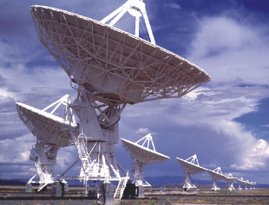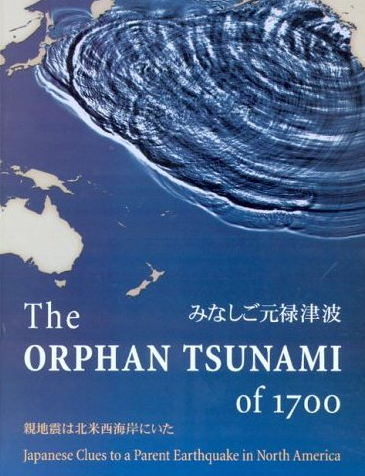
Sunday, May 27, 2007
The Second of the Three Most Important Events of the 21st Century
I think the second of three of the most important events so far in the 21st century just happened a few days ago.
The first important event was Google becoming useful at the turn of the century
We have forgotten just how useless the internet was before we could find information. (I remember trying to guess website addresses because there was no good way to look them up!) The genius of Google is they realized that although computers do not understand the information, people looking for the information do, so every time a human looked up a particular search term, Google noted which items the human clicked on, and moved those choices up in the ranking. Now, after just a few years, Google searches in English produce really useful results almost every time for almost any topic.
The second important event was Google becoming useful in May 2007 for speakers of major languages other than English
Only about 5% of the people on Earth have English as their primary language.
Being native English speakers, we take for granted that most of the information on the internet is in English. We also take for granted that we have no problem guessing which search terms might be useful in finding the information we want and no problem in evaluating webpage summaries at a glance. For those for whom English is not the first language, imagine trying to guess what useful English search terms might be. Deciding which webpages to look at in a search is slow and wastes a lot of time since they cannot easily scan in English.
For native speakers of Arabic, French, Italian, German, Portuguese, Russian, Japanese, Korean, and Chinese, this problem is more or less coming to an end.
Google now provides search pages in more than 10 major languages.
These search pages allow input of search terms in these languages, with automatic searching of equivalents in some other languages, including of course, English.
The search results are automatically translated from any of these languages into the language being used. (The rankings and translations are not very good yet, but hey, it just started yesterday! Once the search engine and translating software have learned, they will be much better. And it is not necessary for the translation of results to be perfect; they just have to be good enough for the searcher to get the gist of the information and to find relevant passages. Entire documents can be automatically translated by Google language tools in seconds into any major language, often to the point where you can guess what it says, or at least decide if you want to read the original.) It is still in testing, so not all the functions are currently available.
See this new tool at
http://translate.google.com/translate_s
So, instead of only 400 million native English speakers being able to easily search for information, now 3,000 million people can do so.
The third important event will be Google using artificial intelligence to look for patterns not apparent to humans in all the digital information that already exists or is being scanned in
Imagine doing research on a particular disease. There is no way you could read the thousands of papers on the subject in a reasonable amount of time, and what if there were relevant information outside the field that you wouldn't have even considered looking at? Within a few years Google will have ordered and associated the information so that you can find every mention in any information in digital form. Google could help you find terms which are often equivalent (such as "ischemia" and "heart attack" and their equivalents in major world languages). Google could then help you look for patterns no human could possibly find in a reasonable amount of time. Ultimately, Google will itself look for patterns that have escaped the attention of humans. This will accelerate research so much that I expect truly explosive advances by 2020.
The intellectual resources of the planet are about to go through the biggest leap ever, dwarfing anything that has come before. We could easily see advances equivalent to 10 times the 20th century by 2020.
And what will be left for humans? What is always left: those things that a machine cannot do. We understand concepts and can ask certain questions that computers will be unable to mimic for several decades. Our abilities are about to be magnified beyond our wildest dreams... and they had better be before the oil starts to run out...
The first important event was Google becoming useful at the turn of the century
We have forgotten just how useless the internet was before we could find information. (I remember trying to guess website addresses because there was no good way to look them up!) The genius of Google is they realized that although computers do not understand the information, people looking for the information do, so every time a human looked up a particular search term, Google noted which items the human clicked on, and moved those choices up in the ranking. Now, after just a few years, Google searches in English produce really useful results almost every time for almost any topic.
The second important event was Google becoming useful in May 2007 for speakers of major languages other than English
Only about 5% of the people on Earth have English as their primary language.
Being native English speakers, we take for granted that most of the information on the internet is in English. We also take for granted that we have no problem guessing which search terms might be useful in finding the information we want and no problem in evaluating webpage summaries at a glance. For those for whom English is not the first language, imagine trying to guess what useful English search terms might be. Deciding which webpages to look at in a search is slow and wastes a lot of time since they cannot easily scan in English.
For native speakers of Arabic, French, Italian, German, Portuguese, Russian, Japanese, Korean, and Chinese, this problem is more or less coming to an end.
Google now provides search pages in more than 10 major languages.
These search pages allow input of search terms in these languages, with automatic searching of equivalents in some other languages, including of course, English.
The search results are automatically translated from any of these languages into the language being used. (The rankings and translations are not very good yet, but hey, it just started yesterday! Once the search engine and translating software have learned, they will be much better. And it is not necessary for the translation of results to be perfect; they just have to be good enough for the searcher to get the gist of the information and to find relevant passages. Entire documents can be automatically translated by Google language tools in seconds into any major language, often to the point where you can guess what it says, or at least decide if you want to read the original.) It is still in testing, so not all the functions are currently available.
See this new tool at
http://translate.google.com/translate_s
So, instead of only 400 million native English speakers being able to easily search for information, now 3,000 million people can do so.
The third important event will be Google using artificial intelligence to look for patterns not apparent to humans in all the digital information that already exists or is being scanned in
Imagine doing research on a particular disease. There is no way you could read the thousands of papers on the subject in a reasonable amount of time, and what if there were relevant information outside the field that you wouldn't have even considered looking at? Within a few years Google will have ordered and associated the information so that you can find every mention in any information in digital form. Google could help you find terms which are often equivalent (such as "ischemia" and "heart attack" and their equivalents in major world languages). Google could then help you look for patterns no human could possibly find in a reasonable amount of time. Ultimately, Google will itself look for patterns that have escaped the attention of humans. This will accelerate research so much that I expect truly explosive advances by 2020.
The intellectual resources of the planet are about to go through the biggest leap ever, dwarfing anything that has come before. We could easily see advances equivalent to 10 times the 20th century by 2020.
And what will be left for humans? What is always left: those things that a machine cannot do. We understand concepts and can ask certain questions that computers will be unable to mimic for several decades. Our abilities are about to be magnified beyond our wildest dreams... and they had better be before the oil starts to run out...
Subscribe to:
Post Comments (Atom)

No comments:
Post a Comment